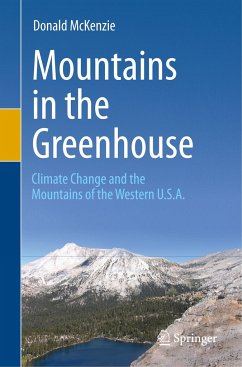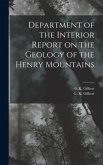This book is written for general readers with an interest in science, and offers the tools and ideas for understanding how climate change will affect mountains of the American West. A major goal of the book is to provide material that will not become quickly outdated, and it does so by conveying its topics through constants in ecological science that will remain unchanged and scientifically sound. The book is timely in its potential to be a long-term contribution, and is designed to inform the public about climate change in mountains accessibly and intelligibly.
The major themes of the book include: 1) mountains of the American West as natural experiments that can distinguish the effects of climate change because they have been relatively free from human-caused changes, 2) mountains as regions with unique sensitivities that may change more rapidly than the Earth as a whole and foreshadow the nature and magnitude of change elsewhere, and 3) different interacting components of ecosystems in the face of a changing climate, including forest growth and mortality, ecological disturbance, and mountain hydrology. Readers will learn how these changes and interactions in mountains illuminate the complexity of ecological changes in other contexts around the world.
The major themes of the book include: 1) mountains of the American West as natural experiments that can distinguish the effects of climate change because they have been relatively free from human-caused changes, 2) mountains as regions with unique sensitivities that may change more rapidly than the Earth as a whole and foreshadow the nature and magnitude of change elsewhere, and 3) different interacting components of ecosystems in the face of a changing climate, including forest growth and mortality, ecological disturbance, and mountain hydrology. Readers will learn how these changes and interactions in mountains illuminate the complexity of ecological changes in other contexts around the world.
"The book is an essential source of information for understanding how the western US mountains may respond to the current climate crisis, in all their infinite variety. It should therefore be on the shelf of any environmental manager in the West, but also any scientist working in mountain environments more broadly, and I strongly recommend it in this regard and congratulate the author on a comprehensive account." (Nick Pepin, Mountain Research and Development, Vol. 41 (2), May, 2021)








